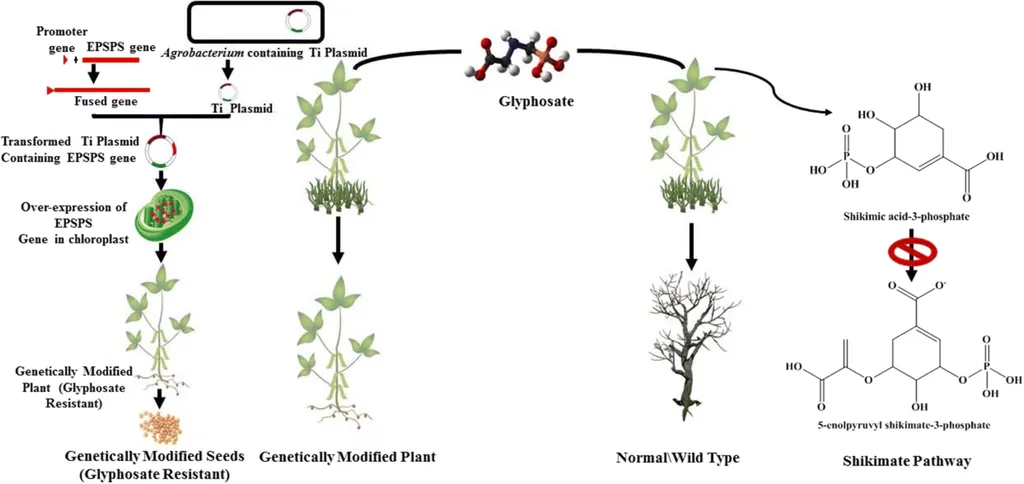In the heart of Punjab, India, a groundbreaking study led by Amanpreet K. Sidhu, a researcher from the Department of Science at Khalsa College for Women in Amritsar, is making waves in the agritech and environmental sectors. The study, published in the Journal of Water and Environmental Nanotechnology (translated as ‘Journal of Water and Environmental Nanotechnology’), explores a novel approach to tackling one of agriculture’s most persistent challenges: glyphosate degradation.
Glyphosate, a widely used herbicide, has long been a double-edged sword for the agricultural industry. While it effectively controls weeds, its persistence in the environment poses significant health and ecological risks. Sidhu’s research introduces a promising solution: laccase enzyme immobilized on magnetic iron oxide nanoparticles (IONPs). This innovative method not only enhances glyphosate degradation but also offers a sustainable and reusable approach to pesticide remediation.
The study compared the efficacy of free laccase enzyme with two variants of laccase immobilized on IONPs—IONP-Thio-Lac and IONP-PVA-Lac. The results were striking. After just one hour, the degradation rates were 29.534% for free laccase, 40.533% for IONP-Thio-Lac, and a remarkable 74.758% for IONP-PVA-Lac. “The immobilized laccase systems, particularly IONP-PVA-Lac, demonstrated significantly higher degradation efficiency compared to the free enzyme,” Sidhu explained. “This suggests that immobilization on magnetic nanoparticles enhances the enzyme’s stability and reusability, making it a more effective and sustainable solution for glyphosate remediation.”
The implications of this research are far-reaching. For the agricultural sector, this technology could revolutionize pesticide management, reducing environmental contamination and health risks associated with glyphosate. “The potential applications extend beyond agriculture,” Sidhu added. “This method could be adapted for other environmental remediation processes, offering a cleaner and more sustainable future.”
The commercial impact of this research is substantial. As the demand for sustainable and eco-friendly solutions grows, technologies like laccase-immobilized magnetic nanoparticles could become a cornerstone of modern agritech and environmental protection. The study’s findings highlight the importance of continued research and development in this field, paving the way for innovative solutions that address the pressing challenges of pesticide management and environmental sustainability.
In the words of Sidhu, “This research is just the beginning. The potential for further optimization and application of this technology is vast, and we are excited to explore its full capabilities.” As the world seeks sustainable solutions to environmental challenges, Sidhu’s work offers a beacon of hope and a promising path forward.

